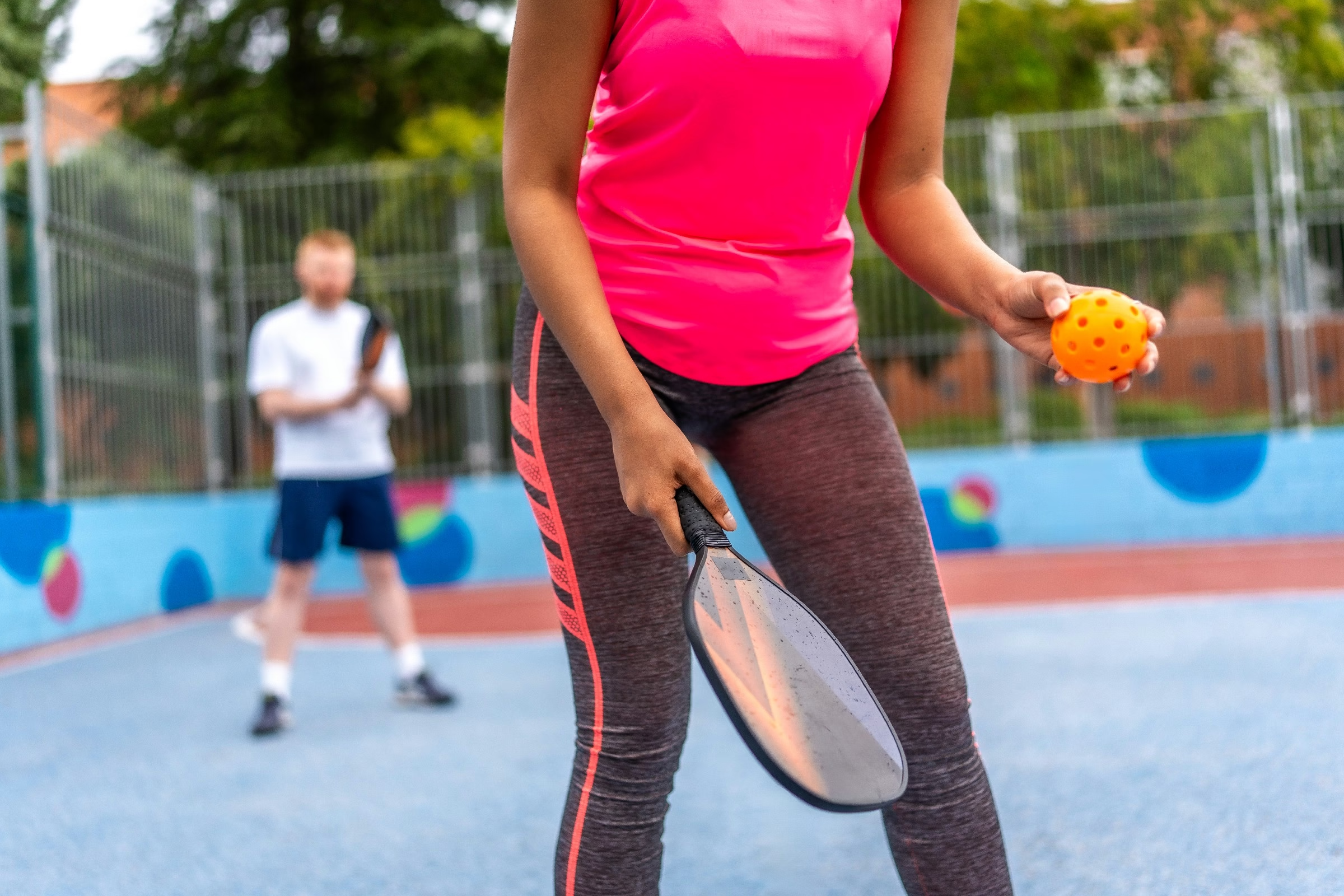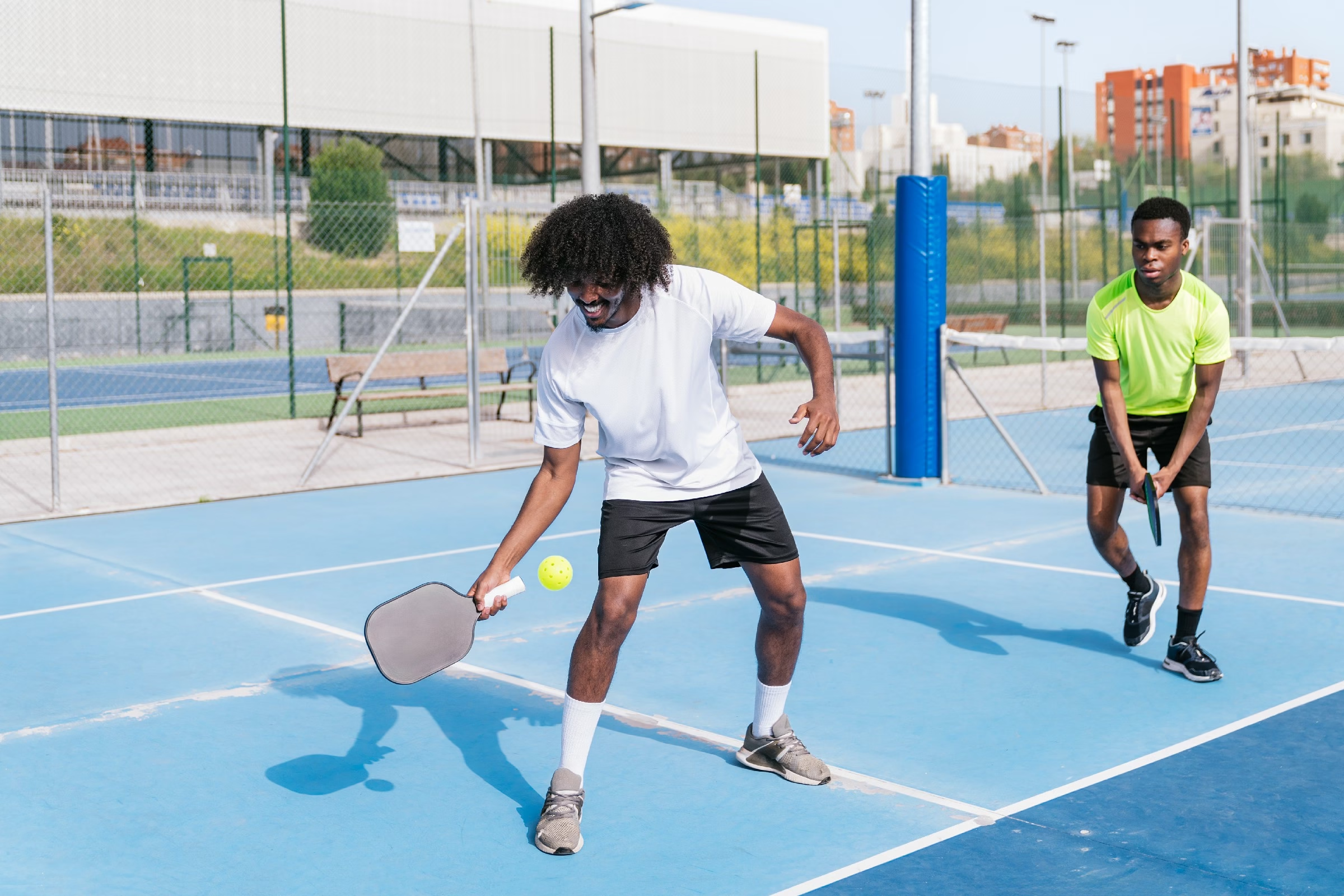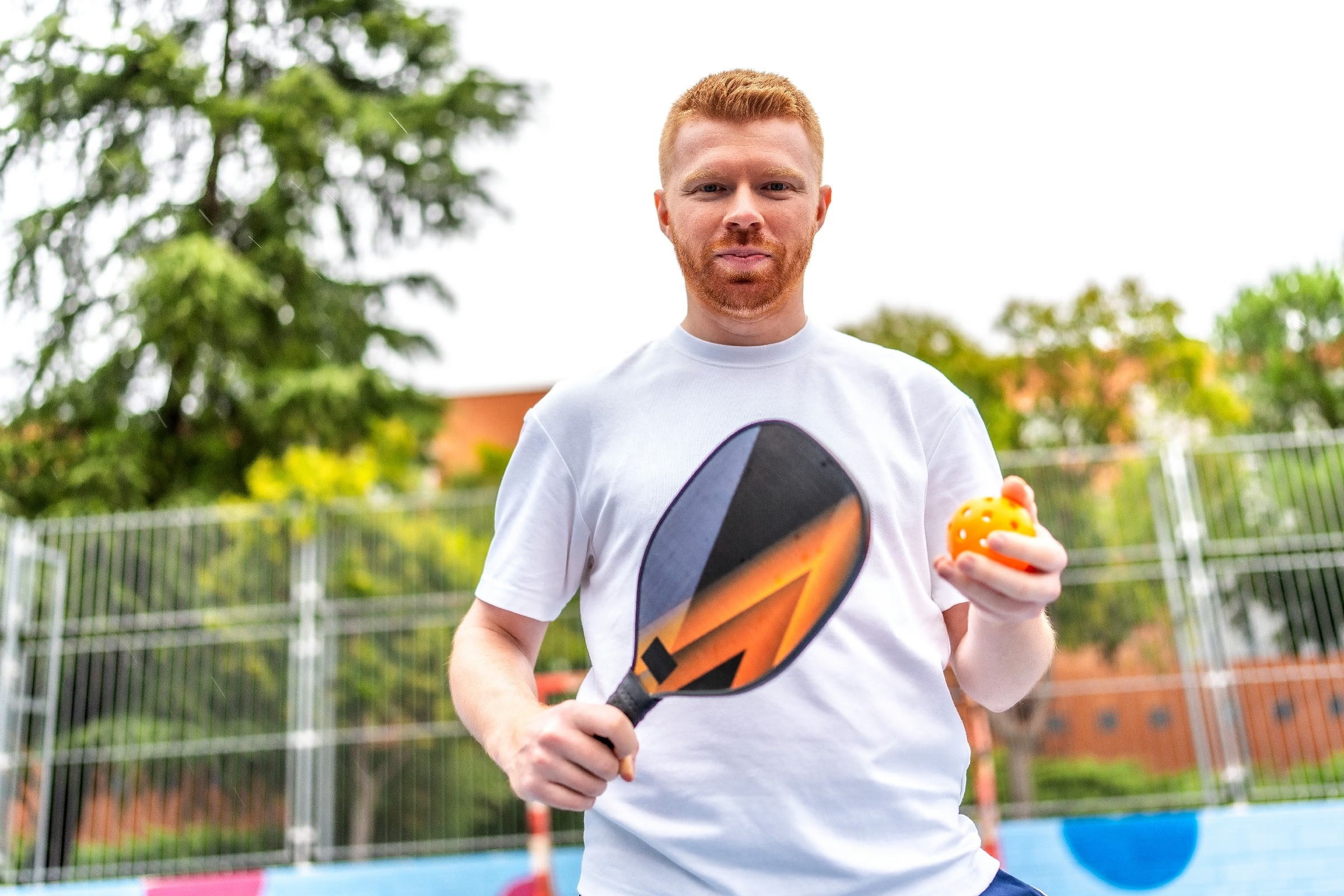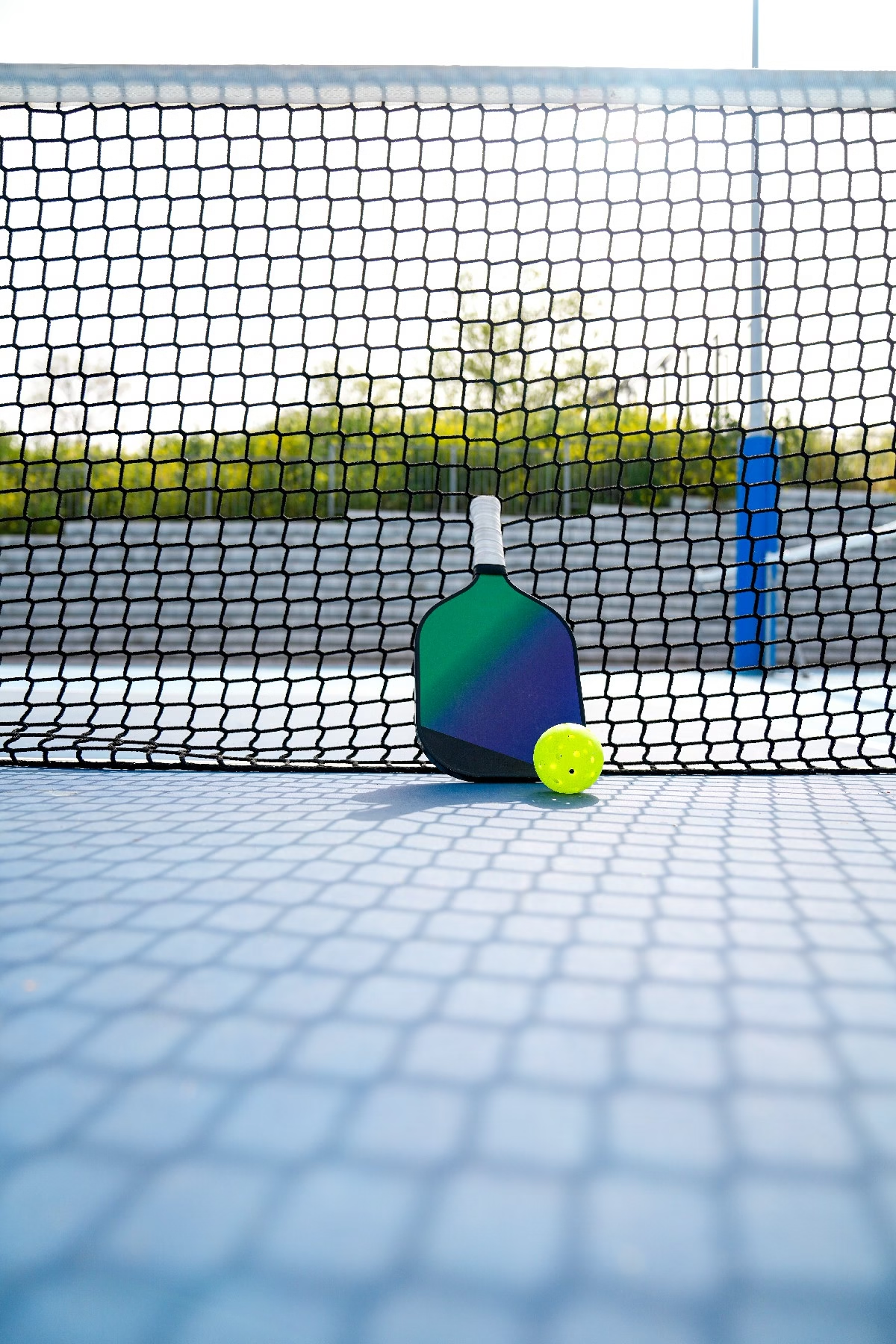Blog
is there another name for pickleball

In the realm of sports, names often tell a story — reflecting the essence of the game, its origins, or even its unique charm. Enter pickleball, a sport that has skyrocketed in popularity over the past few years, captivating players of all ages with its blend of tennis, badminton, and ping pong.Yet, as its fame spreads, one can’t help but wonder: is there another name for this quirky, paddle-wielding pastime? In this article, we’ll delve into the history, evolution, and potential aliases of pickleball, exploring how names can shape our understanding and gratitude of a beloved game. Join us as we uncover the roots and variations behind this delightful sport that continues to bring people together on courts across the globe.
Table of Contents
- Exploring Alternative Names in the world of Pickleball
- The Origins and Evolution of the Term Pickleball
- Regional Variations: Do Different Areas Call It Something Else?
- Understanding the Game through Its Nicknames
- Community Insights: What Players Prefer to Call It
- The Impact of Naming on Sport identity and Popularity
- Q&A
- To Wrap It Up
Exploring Alternative Names in the World of Pickleball
Pickleball, while a name that has gained widespread recognition, evokes curiosity about whether it has alternative names in various cultures or communities. In some regions, enthusiasts might refer to it as “paddle tennis” due to its similarities in equipment and play style, blurring the lines between these two engaging racquet sports. This terminology can often cause confusion among newcomers trying to navigate through the myriad of racquet sports available today.
Along with the term “paddle tennis,” certain communities have coined their own creative nicknames for the sport,highlighting its playful and fun nature. Here are a few examples:
- “Dill Ball” – A fun play on words that incorporates the essence of the sport while referencing the popular pickling ingredient.
- “Net Shuffle” - This name encapsulates the movement and strategy of the game.
- “Smash It!” – An exclamatory name that reflects the high-energy, competitive spirit of pickleball.
Interestingly, variations of the game also exist, which some players might encounter under different names. As a notable example, the game of “bat-and-ball” in outdoor park settings is sometimes referred to as “splash pickleball”, especially among youth groups.Within professional circuits or casual play, itS not uncommon to see these names emerge, enhancing the community’s connection to the sport. Below is a simple table summarizing these alternative names:
| Name | Reference |
|---|---|
| Dill Ball | Playful origin reflecting the name’s roots. |
| Net Shuffle | Focuses on movement in the game. |
| Smash It! | Highlights competitive energy. |
| Splash Pickleball | Casual variation often seen in parks. |
The Origins and Evolution of the Term Pickleball
The term “pickleball” has a whimsical yet intriguing origin that dates back to the mid-1960s. Legends abound regarding its name, but a popular account attributes it to the family dog of one of the game’s co-founders, Joel Pritchard. The playful pup, named Pickles, would chase after the wiffle balls being used for the newly invented sport, leading to the quirky moniker. This story, while charming, adds a layer of personality to a sport that has gained something of a cult following in recent years.
As the game evolved, so did its terminology. Originally referred to simply as a combination of tennis, badminton, and ping pong, it was later embraced as “pickleball,” ringing a bell of nostalgia and humor. The sport’s growth prompted a broader understanding and acceptance of the term, helping it delineate itself from the other racquet sports. Some enthusiasts have humorously suggested other names related to the game’s community or the unique aspects of play, which can include:
- Wiffle Smash – a nod to the iconic wiffle ball used in gameplay.
- Net tennis – emphasizing the net-based nature of the game.
- Backyard Paddle – reflecting its origins as a casual game played in backyards.
To better understand the term’s trajectory, one can chart the evolution of its definitions over time. The following table summarizes the key milestones in the linguistic journey of pickleball:
| Year | Milestone |
|---|---|
| 1965 | Creation of the game by Joel Pritchard,Bill Bell,and Bob Young. |
| 1970s | Emergence of the name “pickleball” linked to the Pritchard family dog. |
| 1990s | Standardized rules and official tournaments begin. |
| 2010s | Meaningful increase in popularity and recognition of the sport. |
Regional Variations: Do Different Areas Call It Something Else?
Across different regions, it’s common for sports and games to take on local flair, leading to various nicknames and terms. As a notable example, while “pickleball” is widely recognized, players in certain areas affectionately refer to it as “the court sport of choice” or even “the ultimate backyard game.” Such names frequently enough reflect not only the casual nature of play but also the community’s overall attitude towards the sport.
In some locales, especially where the sport has gained a significant following, you might hear terms like “paddle tennis” or “mini tennis.” These variations sometimes stem from local adaptations of the rules or from the equipment used. In a few regions, especially where tennis is predominant, players may even call it “pickle tennis” to signify its close relationship with conventional tennis, albeit with its unique twists.
Moreover,cultural influences can result in entirely different branding for the game. For example, in areas with a rich history of regional games and sports, pickleball might be referred to by a colloquial term that reflects its competitive nature, such as “community clash” or “recreational showdown.” Such terms emphasize the social aspect of the game, highlighting the connection between players and the community spirit that surrounds this rapidly growing sport.
Understanding the Game through its Nicknames
Pickleball, with its unique blend of tennis, badminton, and ping-pong, has earned a variety of intriguing nicknames that reflect its spirited essence and eager following. Among the most charming is “The Fastest Growing Sport”, which highlights the meteoric rise of the game across the United States and beyond. Clubs dedicated to this playful pastime are sprouting up everywhere, making it an appealing choice for players of all ages, including those who may not have previously engaged in traditional racquet sports.
Another popular moniker is “Paddle tennis”, which underscores the sport’s core equipment while drawing parallels to paddle-based games. This nickname is especially favored within communities that have a rich history in various paddle sports. The term emphasizes the accessibility of pickleball, offering a sense of familiarity for those already acquainted with similar games. The simple, swift nature of play adds to its charm, making it a favorite for both competitive and casual games alike.
| Nickname | description |
|---|---|
| The Fastest Growing Sport | This nickname reflects the rapid expansion and popularity of pickleball in various communities. |
| Paddle Tennis | A term that highlights the equipment used, emphasizing the connections to other paddle sports. |
| The People’s Game | Indicates the inclusive nature of pickleball, appealing to players of all ages and skill levels. |
Lastly, one affectionate term that has gained traction is “The People’s Game”. This phrase encapsulates the very spirit of pickleball, showcasing its ability to bring together friends, families, and even strangers in joyous play. It reinforces the notion that anyone,regardless of age or athletic ability,can pick up a paddle and enjoy the game.As more individuals embrace pickleball as a social and competitive outlet,this nickname continues to resonate with enthusiasts and newcomers alike,solidifying its place in the hearts of many.
Community Insights: What players Prefer to Call It
The debate over what to call the beloved sport of pickleball has become a fun and engaging topic among players and enthusiasts. Many in the community have come up with their own colorful alternatives, reflecting personal preferences and local quirks.Below are some of the most popular alternatives that players prefer:
- Paddle Tennis: Some players liken pickleball to paddle tennis, emphasizing the paddle aspect of the game.
- Pickle Smash: A playful twist that resonates with younger players and those who appreciate the lively nature of the sport.
- Net Play: This term illustrates the primary focus of the game and appeals to traditionalists looking for a straightforward label.
Interestingly, regional variations also influence the names players choose. In some areas, enthusiasts have created unique names based on local culture or inside jokes, adding a layer of community identity to the sport. As an example, certain clubs refer to it as “Dill Ball,” a humorous nod to the origins of the game’s name. A quick poll revealed exciting preferences:
| Preferred Name | Player Count |
|---|---|
| Paddle Tennis | 45 |
| Pickle Smash | 30 |
| Dill Ball | 15 |
Ultimately, the nomenclature around this entertaining sport serves more than just a functional purpose; it fosters a sense of belonging and camaraderie among players. Whether it’s a throwback to its roots or a playful rebranding, these names capture the spirit of a game that continues to grow in popularity. such a variety of terms also makes conversations about the sport livelier and invites newcomers to join the fun.
The Impact of Naming on Sport Identity and Popularity
The significance of a name in the realm of sports is often underestimated, yet it plays a pivotal role in shaping identity and enhancing popularity. When considering alternatives for “pickleball,” one might delve into the elements that make this name memorable: its quirky sound and unique connotations. Names like “Paddle Smash” or “Net Ball” could evoke a sense of dynamism and excitement. Such alternatives could perhaps attract new players who are drawn to the sport’s lateral movements and engaging gameplay.
Moreover, the name “pickleball” has established a certain cultural cachet that contributes to its popularity. Switching to a different name could risk diluting its established brand, highlighting the challenge of rebranding in the sports world. As an example, names reflecting local heritage or attributes, such as “Garden Game” or “Sunny Court Game”, could imbue the sport with a sense of community. Though, they may also lack the distinctiveness that makes pickleball stand out on the global stage.
| Alternative Names | Potential Appeal |
|---|---|
| Paddle Smash | Dynamic and engaging |
| Net Ball | Simplistic yet relatable |
| Garden Game | Community-focused |
| Sunny Court Game | Leisurely and inviting |
Ultimately, the name associated with a sport frequently enough becomes a part of its narrative. What “pickleball” conveys—its whimsy and light-heartedness—has undoubtedly charmed players and spectators alike. This allure is critical to its sustained growth and engagement. As discussions around alternative names continue, the essence of what makes pickleball unique must remain appreciated; the right name can capture its spirit and continue to foster its identity in the diverse world of sports.
Q&A
Q&A: Exploring Alternative Names for Pickleball
Q1: What is pickleball?
A1: pickleball is a dynamic racquet sport combining elements of tennis, badminton, and table tennis. Played on a smaller court with a net, it utilizes paddles and a plastic ball, attracting enthusiasts of various ages.
Q2: Is pickleball known by any other names?
A2: While “pickleball” is the official name recognized worldwide, some playful variations occasionally pop up. However, these do not have any formal standing. As an example, “paddle tennis” is sometimes confused with pickleball due to similar gameplay, but it’s a distinct sport.Q3: Why is it called pickleball?
A3: The name “pickleball” has a whimsical origin. It’s commonly said to derive from “Pickles,” the name of a dog belonging to one of the sport’s co-founders, Joel Pritchard. However, there’s also a theory that it comes from the term “pickle boat,” referring to a crew of inexperienced oarsmen.
Q4: Are there regional variations or slang terms for pickleball?
A4: While “pickleball” reigns as the official title, some regions may have their own slang or colloquial expressions when talking about the game. You might hear players casually refer to it simply as “paddling” or call their matches “pickle duels,” but these terms are more humorous than official.
Q5: Could pickleball be confused with other sports?
A5: Yes, pickleball can sometimes be confused with paddle tennis or platform tennis, which share similarities in gameplay and equipment. However,the distinctive features of pickleball—such as the court size,the type of ball,and specific rules—set it apart from these other racquet sports.
Q6: is there a future for alternative names in pickleball?
A6: As the sport continues to grow in popularity, particularly in the U.S. and internationally, there could be more playful or regional nicknames that arise. Just like many sports evolve, so to does the language surrounding them. Who knows—maybe a catchy nickname is just around the corner!
Q7: How can I get involved in pickleball?
A7: Whether you’ve heard about it as pickleball or maybe something more quirky, getting involved is easy! Local community centers, parks, and recreational facilities often have pickleball courts and equipment available for players of all skill levels. Look for local leagues or beginner classes to jump into the action!
To Wrap it Up
As we wrap up our exploration of alternative names for pickleball, it’s clear that while the sport might not have a widely recognized alias, its vibrant community and varied origins add depth to its identity. From its quirky beginnings to the way it’s captured the hearts of millions,pickleball stands strong on its own. Whether you refer to it as pickleball,paddle tennis,or just the new favorite pastime of your neighborhood,the game’s spirit remains unchanged—a delightful blend of competition,camaraderie,and fun. So, the next time you step onto the court or gather with friends for a match, remember that it’s more than just a name—it’s a celebration of play, laughter, and connection. Thanks for joining us on this journey to uncover the layers of this beloved sport!












